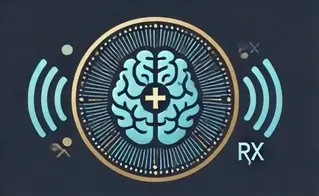ADHD

It is normal for children to have trouble focusing and behaving at one time or another. However, children with ADHD do not just grow out of these behaviors. ADHD is one of the most common neurodevelopmental disorders of childhood. Neurodevelopmental means the way the brain grows and develops.
ADHD is:
- More frequently diagnosed in boys than girls
- Occurs in about five percent of children worldwide, and just over nine percent in the United States
- Occurs in about 2.5 to 4 percent of adults worldwide
There has been an increase in ADHD diagnoses over recent decades, partly due to greater awareness and better diagnostic tools. This rise in diagnosis may also reflect a better understanding of the disorder and its symptoms across different age groups.
What are the symptoms of ADHD?
Symptoms of ADHD typically fall into three main categories:
Inattention
Inattention
Difficulty staying on task
Trouble sustaining focus
Issues staying organized
Forgetfulness with daily behaviors
Easily distracted
Hyperactivity
Moving about constantly
Fidgets or taps
Restlessness
Trouble staying seated
Overtalking
Impulsivity
Impulsive behaviors
Acting without thinking
Trouble with self-control
Desire for immediate rewards
Inability to delay gratification
Frequently interrupts others
How is ADHD diagnosed?
Diagnosing ADHD involves a comprehensive evaluation by a healthcare professional. Deciding if a person has ADHD is a process with several steps, since there is no single test to diagnose ADHD.
For a person to receive a diagnosis of ADHD, the symptoms must be:
- Chronic or long-lasting
- Impair the person’s functioning
- Cause the person to fall behind typical development or expectations for their age
It is important to seek help from a trained professional because stress, sleep disorders, anxiety, depression, and other physical conditions or illnesses can cause similar symptoms to those of ADHD.
ADHD Treatment
Medications
Stimulants (like methylphenidate and amphetamines) and non-stimulants (such as atomoxetine) are commonly prescribed to help manage symptoms
Behavioral Therapy
Cognitive-behavioral therapy (CBT) can help individuals develop strategies to manage their symptoms and improve their organizational skills
Educational Support
Special accommodations and support at school or work can help individuals with ADHD succeed in their academic and professional lives
Lifestyle Changes
Establishing routines, setting clear goals, and employing organizational tools can also be beneficial
What are the consequences of untreated ADHD?
If ADHD goes undiagnosed, you may see signs such as:
- Struggle with focus
- Decline in academic performance
- Disorganization and issues with time management
- Job challenges including missed deadlines or errors
- Depression and/or anxiety
- Stress within relationships
